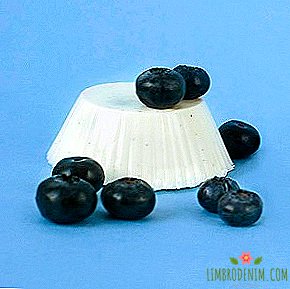Magic outside of Hogwarts: How to apply retinol to help the skin
Text: Moore Sobolev, authoring the telegram channel Fierce & Cute
Retinol - one of the most well-studied cosmetic ingredients and one of the few whose efficacy for mature skin is clinically proven by a huge amount of research. Nevertheless, there are many nuances in its use. We tried to figure them out with the help of experts and cosmetic chemistry.
Where does retinol come from


Retinol is also pure (true) vitamin A. Strictly speaking, vitamin A is a group of similar in structure and action of organic compounds: this includes retinol, retinal, dehydroretinol, retinoic acid, and also some carotenoids, which are provitamins A (i.e., which in the body turn into vitamins). Vitamin A is of animal and plant origin: the first is just retinoids (if we talk about food, it is found in fish oil, liver, eggs), the second is carotenoids (there are many of them in carrots, spinach, apricots). The body's vitamin A is necessary primarily for normal vision, but the state of the immune system, bones and, strictly speaking, skin also depends on its sufficient amount.
How does he work in cosmetics
The main function of retinol in cosmetics is to smooth the skin, but it is also used in the treatment of acne, lightening of hyperpigmentation, for alleviating psoriasis and even eliminating warts. Emma Hobson from the International Dermatological Institute in an interview with The Huffington Post calls retinol "normalizing vitamin": it is one of the few ingredients with strong intracellular activity. In particular, retinol affects the production of collagen, which slows down over the years and, for example, is impaired by strong UV radiation.
"This is the nature of nature that there are special“ retinoid ”receptors in the skin cell nucleus. These receptors“ respond ”to retinoic acid, a“ contact ”occurs, and the cell nucleus is given a clear indication of what needs to be produced, says Yana Chernigova, dermatovenerologist, cosmetologist , trichologist of the Clinic of Modern Cosmetology of Yulia Shcherbatova. - Having penetrated through the stratum corneum of the skin into the epidermis, retinoids control the processes of keratinization and pigmentation, helping the skin to gently exfoliate dead cells, plus whiten pigmentation. Popa in the deeper layer, in the dermis, retinoids begin to give signals to fibroblasts, cells that produce collagen and elastin fibers, and they begin to actively produce new, elastic “spirals” that tighten our skin. While in the skin ducts (sebaceous glands), retinoids normalize increased sebum secretion, regulate the formation of acne, acne and acne, thinning the thick sebum, rapidly oxidizing and collecting harmful microflora, and bringing it all to the surface of the skin. "
What retinol is added to care products


One of the most important things to understand when choosing cosmetics with retinoids is how different they are. Vitamin A derivatives are divided into four generations - the substances of the first (retinol, retinaldehyde, tretinoin) are the most effective, but they are the most aggressive. “All synthetic retinoids are medicinal substances, and they are not allowed in cosmetics,” says Marina Ratkevich, chief physician of Petrovka-Beauty’s medical cosmetology center and an expert in age medicine. “Natural retinoids are also different: some forms are used only in medicines, but retinol, retinal, and retinol esters usually get into cosmetics. Retinol penetrates the skin best, then retinyl palmitate and retinyl acetate. "
“Retinoic acid triggers the processes inside the cell,” says Yana Chernigova. “When any form of retinol is applied to the skin, the process of converting this form to retinoic acid begins. Accordingly, the closer the specific form of retinol to retinoic acid in the chain of transformations, the more active it shows ". Retinoic acid in its pure form also exists - this form is called tretinoin, it is considered a drug and should be sold exclusively by prescription. Despite the fact that tretinoin can be bought via the Internet thanks to gray schemes and new technologies, this is not worth it - you can earn serious consequences.
What precautions must be taken


Tatiana Al-Sabunchi, chief physician at the Tori Cosmetology Center, recommends that anyone who is going to use cosmetics based on vitamin A should first consult with a cosmetologist - even if it is just a matter of home care. "The specialist should select the appropriate product for the specific case with the desired concentration. To reduce the possible dermatitis reaction, it is recommended to add cosmetics based on retinol gradually, no more than one product per month," says Al-Sabunchi.
What can make such a wonderful ingredient bad? And a lot of things: from dry skin and mucous membranes to the thinning of the stratum corneum (then the skin will feel like parchment paper to the touch). In addition, all retinoids increase photosensitivity, so Al-Sabunchi recommends not only using sanskrin (which is necessary), but also taking seasonality into account. "Retinol increases sensitivity to the sun, so that under the influence of external factors that would not normally cause any reaction, skin not used to retinoids can" respond "with persistent hyperpigmentation. That is why, if you have not used vitamin A and its derivatives, it is recommended to begin their use outside the season of active solar radiation. " At the same time, doctors warn that light redness and flaking at the beginning of use is normal: this is how the skin adapts to the new active ingredient.
The most important contraindication to the use of strong retinoids is pregnancy: all derivatives of vitamin A are teratogenic, that is, they are potentially dangerous for the embryo. This problem is relevant only for women: the reproductive function of men, as noted by Jan Chernigov, retinoids have no negative effect. Teratogens are primarily those derivatives of retinol, which are drugs (after the end of their intake, it is impossible to become pregnant for six months) and powerful cosmetic procedures. And although it is impossible to say that home cosmetics with retinol are not teratogenic, many doctors recommend that during pregnancy even home care should be avoided.
When choosing cosmetics with derivatives of retinol, you should pay attention to the packaging: since vitamin A is an antioxidant, it, like its counterparts, is unstable and is destroyed by exposure to light and air. It is best to choose opaque bottles with pump (this, incidentally, refers to the absolute majority of cosmetics) - so the active ingredients are stored the longest. Most cosmetologists usually recommend using agents with retinoids for the night. Paula Runner's “Cosmetic Cop” advises not to abandon them during the day - but only if you do not forget about sunscreen with a factor of at least SPF 30. She also suggests not removing care products with acids and vitamin C when using retinoids - on the contrary, synergy care will show the greatest effectiveness if you introduce funds alternately and gradually. It all depends on your skin: for many, such a load will seem excessive, the skin may become too dry and thin.
If you do not have acne and direct medical indications for the use of retinol, looking towards vitamin A products makes sense closer to thirty years, not earlier. "Vitamin A speeds up skin metabolism, and up to about twenty-six years old, it is already very active - the use of retinol can only cause additional inflammation or irritation of the skin," says cosmetologist and creator of her own personal brand, Rene Roulow, in her blog. She also warns that the effect of cosmetics with derivatives of vitamin A will come no earlier than two to four months - so do not give up and wait.
Photo:Obagi, Ile de Bote, La Roche-Posay, SkinCeuticals, The Ordinary, REN




